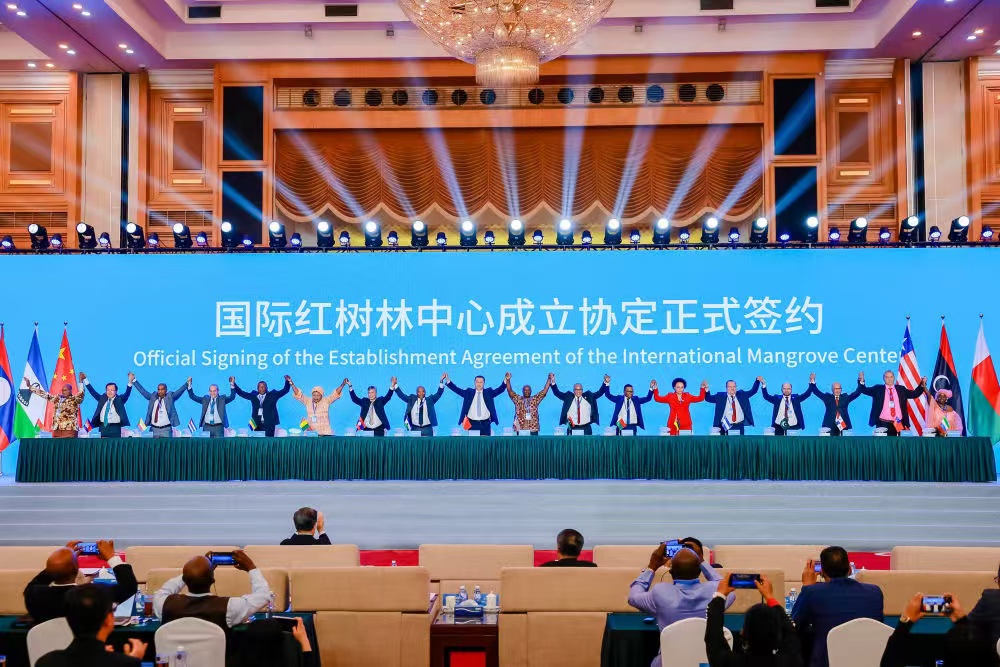Establishment agreement signing ceremony of the world’s first International Mangrove Center held in Shenzhen
SHENZHEN, ChinaSHENZHEN, China, Nov. 11, 2024 /Xinhua-AsiaNet/–
An agreement on the establishment of the International Mangrove Center (IMC) was officially signed on November 6 in Shenzhen, south China’s Guangdong Province. Delegates from 18 contracting parties to the Ramsar Convention attended the signing ceremony.
In September 2023, a proposal to establish the world’s first IMC in Shenzhen was approved by the Standing Committee of the Ramsar Convention at its 62nd meeting. Establishing the IMC is a concrete step toward improving global environmental governance and building a global community of shared future. The center will be a platform for China to deepen exchange and cooperation with member states of the Ramsar Convention, promote global action for mangrove protection, enhance the quality and stability of mangrove ecosystems, and thus bring more benefits to people across the world.

The establishment agreement signing ceremony of the International Mangrove Center was held in Shenzhen on November 6.
The data from the Urban Planning and Natural Resources Bureau of Shenzhen Municipality show that Shenzhen boasts 36,100 hectares of wetlands, 45% of which are under protection. Among them, mangroves cover 296 hectares, and 61% of the wetlands have been designated as protected conservation areas. Notably, the Futian Mangrove Wetland, recognized as one of international importance, represents the only original one of its kind located in the center of a city in the world. Together with the Mai Po and Inner Deep Bay wetlands, also an ecosystem of global significance, it promises to safeguard the vital flyways of migratory birds worldwide. Since 2021, Shenzhen has created 15.48 hectares of mangrove forests and restored 103.08 hectares of existing mangrove forests. Moreover, significant breakthroughs have been achieved in mangrove protection, wetland restoration, and biodiversity conservation.
Prioritizing mangrove conservation, China has enacted a wetland protection law and supporting regulations, improved a nature reserve system centering on national parks, and implemented national wetland protection plans and special action plans for mangrove restoration. Today, China has a total mangrove area of 30,300 hectares, an increase of approximately 8,300 hectares compared to the beginning of the century, placing China among the few nations with a net increase in mangrove coverage.
